SUMMARY
This is AI generated summarization, which may have errors. For context, always refer to the full article.
To run a “constant audit” to prevent corruption, the Commission on Audit (COA) must deploy a “bigger detachment” to the Philippine Health Insurance Corporation (PhilHealth), Senator Ralph Recto said on Saturday, August 8.
“More than a special audit, PhilHealth requires constant audit. I doubt if COA auditors in that agency number more than 25. Too small for a P140-billion-a-year agency, which transacts 35,000 claims a day from 8,500 hospitals and 40,000 healthcare professionals,” Recto said in a statement.
Several senators including Recto earlier called for a special COA audit of PhilHealth, following new allegations of rampant corruption in the state health insurer.
The COA has 5,782 job vacancies including at least 516 for certified public accountants (CPA), and “millennials from the ranks of the 7,390 CPA board passers” since January 2019 should be invited to fill those vacancies, Recto said.
“This bigger COA detachment should be reinforced with other COA auditors to do fraud and performance audits from time to time,” the Senate president pro tempore added.
PhilHealth currently has an internal audit group. Recto said the government-owned corporation also needs a resident Ombudsman so that, with the COA, there would be a “strong tripwire” against fraud.
The government should also consider appointing a member of the opposition as a representative to PhilHealth’s board of directors, Recto said. This opposition representative must meet the “primary qualifications” for board members.
“We need this embedded fair but firm fiscalizer. This will also benefit the appointing power, as no one will exercise greater vigilance than such an appointee,” the senator said.
‘Strictly follow qualifications’
Appointees to the PhilHealth board of directors and top executive positions must “strictly follow qualification standards” laid out in the Universal Healthcare Law, Recto said.
Besides 5 Cabinet members that are automatically assigned board seats, there are 8 other board members mandated by the law: 3 experts and 5 sectoral representatives.
According to Section 13 of the Universal Healthcare Law, the 3 experts in the panel should have expertise in public health, management, finance, and health economics. They following are the law’s requirements for the expert panel:
- Filipino citizenship and good moral character
- They must have “distinguished themselves professionally in public, civic or academic service.”
- They should be in the active practice of their professions for at least 7 years.
- If they are politicians, they must not be appointed within one year of losing an election.
- At least one of the 3 expert panel members should be a woman.
Meanwhile, the 5 sectoral panel members must represent PhilHealth’s direct contributors, indirect contributors, employers’ groups, healthcare providers, and elected local chief executives. They must also be Filipino citizens with good moral character. At least 2 members of this panel should be women.
All appointive board members of the PhilHealth Board are required to undergo training in healthcare financing, health systems, costing health services, and health technology assessment.
The same law requires that the PhilHealth president and CEO, currently Ricardo Morales, should have at least 7 years of experience in public health, management, finance, and health economics, or a combination of any of these expertise.
“This should not be ignored or overruled by presidential discretion,” Recto said. Morales is a retired military general.
All appointees to the PhilHealth Board and Executive Committee must be vetted by the Governance Commission on government-owned and controlled corporations (GCG), and meet its mandatory “fit and proper” rule, Recto added.
“No GCG clearance, no appointment. That is the only way to get the best and the brightest, and not the recycled and reassigned,” the senator added.
Cabinet members in the Board
The secretaries of the following Cabinet agencies are members of the PhilHealth Board by virtue of their positions:
- Department of Health
- Department of Social Welfare and Development
- Department of Budget and Management
- Department of Finance
- Department of Labor and Employment
Recto said these Cabinet members must function as “full-time, hands-on” representatives to the PhilHealth Board, and not designate their authority to alternates from their agencies.
“They can tap their squad of [assistant secretaries] and [undersecretaries] to assist them, but the latter should not be empowered to act on their behalf. We need these Big Brothers, this Cabinet 5, to closely exercise oversight during PhilHealth’s reform and rehabilitation phase,” Recto added.
‘Harness information technology’
PhilHealth should also “harness the full power of information technology (IT) to promote transparency and client satisfaction” in all its transactions, the senator said.
Morales has been pushing for a P2.1 billion IT budget for 2020, which PhilHealth board member Alejandro Cabading earlier alleged as overpriced by P734 million.
Recto said the agency should contract “outside experts” to guide the design, pricing, procurement, and installation of a competitive IT system. PhilHealth should also have an IT advisory council with representatives from businesses and NGOs.
“Contract this out – in an open bidding – to leading companies with good track records, and not fly-by-night carpetbaggers,” he said.
“Changing the system, not just the personalities, will stop the revolving door of anomalies,” Recto added. – Rappler.com
Add a comment
How does this make you feel?


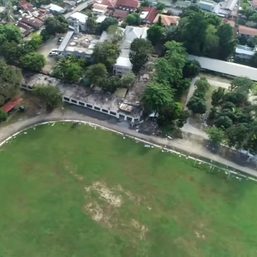





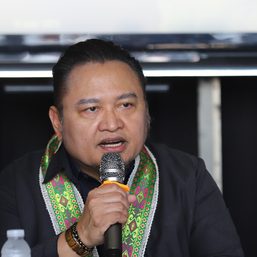

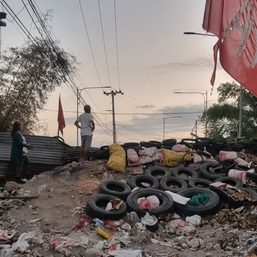
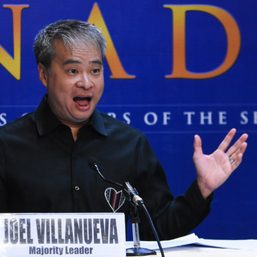
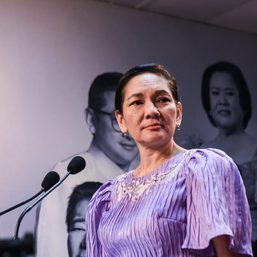

There are no comments yet. Add your comment to start the conversation.